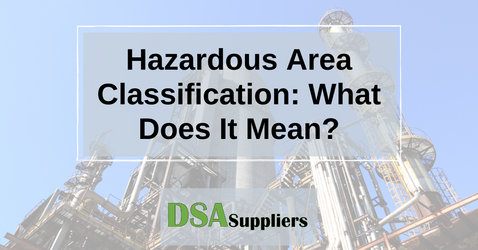Hazardous Area Classification: What Does it Mean?
Posted by Claire Allcock on 23rd May 2020
Hazardous areas are defined as a location where there is a risk of explosion. This is not a ‘one size fits all’ classification, with different zoning classifications being used for varying levels of hazard in an environment. So what do they mean, and how do we classify hazardous areas?
What Makes an Area Hazardous?
For an explosion to take place, there will always be a relatively high concentration of a flammable substance, oxygen, and an ignition source. The presence of all three of these factors will make an area hazardous and in need of extra precautions and safety measures.
The level of risk of an explosion is then broken down by the frequency and duration of an explosive atmosphere occurring, to create the different zones:
- For gas, vapour and mist atmospheres: Zone 0, Zone 1, Zone 2.
- For dust atmospheres: Zone 21, Zone 22.
Hazardous Zones for Gas, Vapour and Mist Atmospheres
Zone 0: A hazardous area in which an explosive atmosphere is continuously present or will frequently occur.
Zone 1: A hazardous area which is likely to create an explosive atmosphere during the normal operation of the environment. This may be due to repair, maintenance or leakage.
Zone 2: A hazardous area which is not as likely to create an explosive atmosphere. If an explosive atmosphere does occur, it will only be present for a short period and will only occur during an accident or unusual operating conditions.
Regardless of the zone of your hazardous area, your personnel and equipment must be protected by a comprehensive gas safety system that will alert your team to present danger. Gas detectors come in a huge range of specifications, so you can be sure to find a system that will give you maximum protection.

